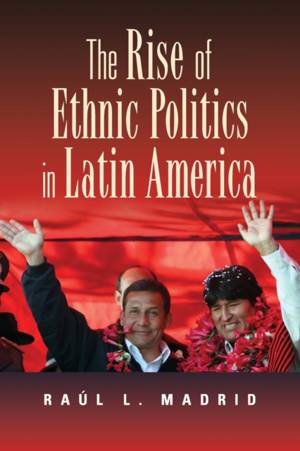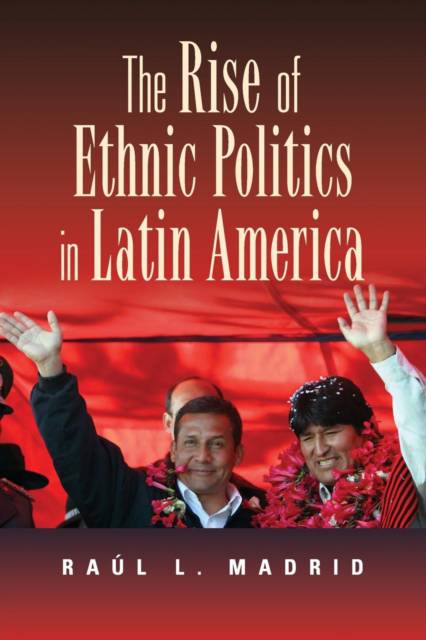
Bedankt voor het vertrouwen het afgelopen jaar! Om jou te bedanken bieden we GRATIS verzending (in België) aan op alles gedurende de hele maand januari.
- Afhalen na 1 uur in een winkel met voorraad
- In januari gratis thuislevering in België
- Ruim aanbod met 7 miljoen producten
Bedankt voor het vertrouwen het afgelopen jaar! Om jou te bedanken bieden we GRATIS verzending (in België) aan op alles gedurende de hele maand januari.
- Afhalen na 1 uur in een winkel met voorraad
- In januari gratis thuislevering in België
- Ruim aanbod met 7 miljoen producten
Zoeken
€ 50,45
+ 100 punten
Uitvoering
Omschrijving
The Rise of Ethnic Politics in Latin America explores why indigenous movements have recently won elections for the first time in the history of the region. Raúl L. Madrid argues that some indigenous parties have won by using inclusive populist appeals to reach out to whites and mestizos. Indigenous parties have managed to win support across ethnic lines because the long history of racial mixing in Latin America blurred ethnic boundaries and reduced ethnic polarization. The appeals of the indigenous parties have especially resonated in the Andean countries because of widespread disenchantment with the region's traditional parties. The book contains up-to-date qualitative and quantitative analyses of parties in seven countries, including detailed case studies of Bolivia, Ecuador, and Peru.
Specificaties
Betrokkenen
- Auteur(s):
- Uitgeverij:
Inhoud
- Aantal bladzijden:
- 256
- Taal:
- Engels
Eigenschappen
- Productcode (EAN):
- 9780521153256
- Verschijningsdatum:
- 30/03/2012
- Uitvoering:
- Paperback
- Formaat:
- Trade paperback (VS)
- Afmetingen:
- 155 mm x 234 mm
- Gewicht:
- 362 g

Alleen bij Standaard Boekhandel
+ 100 punten op je klantenkaart van Standaard Boekhandel
Beoordelingen
We publiceren alleen reviews die voldoen aan de voorwaarden voor reviews. Bekijk onze voorwaarden voor reviews.









